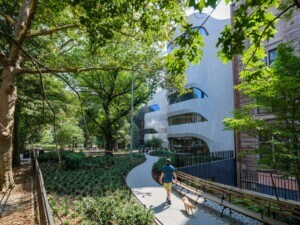Good afternoon and welcome back to another recap of what’s going on today.
Here’s what you need to know:
Los Angeles ends its free public transit experiment after two years
Los Angeles hasn’t been collecting bus fares since the COVID-19 pandemic began in March of 2020, but that pilot program, originally intended to help public transit agency Metro collect data on where reduced-fare service is needed most, is officially over. Despite the pandemic, Metro recorded approximately 281 million fare-free rides over the last 22 months, or about 80 percent of pre-COVID ridership. As Curbed points out, the experiment was only really feasible because the bus system only collects about 6 percent of its operating budget through fares.
While Metro hopes to enroll the communities it has identified in the new low-fare program, critics are predicting that ridership numbers will fall off with fare collection back in place, as will commuters opting for alternatives such as driving or ridesharing.
H/t to Curbed
The statue of Theodore Roosevelt is being removed from the American Museum of Natural History
A bronze statue of Theodore Roosevelt seated triumphantly atop a horse, flanked by a Native American and an African man on foot, has been removed from Manhattan’s American Museum of Natural History. The disassembly, being conducted at a cost of $2 million and under the cover of night to minimize disruptions during the museum’s operating hours, comes five years after a commission established by former Mayor Bill de Blasio was formed to evaluate the fate of controversial New York City monuments. Although the group ultimately voted to add a didactic putting the piece in historic context, it was vandalized in 2019 and later again in 2020 after protests rocked the U.S. in the wake of George Floyd’s murder.
The statue will ultimately be relocated to the Theodore Roosevelt Presidential Library in Menora, North Dakota, once it opens in 2026 as a long-term loan from the city.
H/t to the New York Times
An NFT art gallery is causing an uproar in Marfa
Marfa, Texas, is an art town—nay, a destination for chic visitors looking to check out the landscapes and former offices of Donald Judd, the singular Prada Marfa, and other staples of the Southwest. So when an NFT art gallery owned by a new money millionaire opened there in October of 2021, artists and longtime residents were less than impressed.
The Art Blocks galley, a physical venue of the digital art platform of the same name, is now dividing community members in the small town.
H/t to The New Yorker
San Francisco’s historic Castro Theatre will be converted to host live music
The 100-year-old Castro Theatre, named after the San Francisco neighborhood it sits in, will soon get a major overhaul as the Berkeley-based concert promotion company Another Planet Entertainment takes over its operations. Once the theater reopens in 2023 after six to eight months of construction to update the HVAC, sound, and video systems, the theater, home to one of the country’s oldest film festivals, will shift to a decidedly non-film programming lineup that includes live music, comedy shows, and other events.
H/t to the San Francisco Chronicle
Cryptoland’s plans to buy a Fiji island fall through
Prospective blockchain-based island nation Cryptoland isn’t having a great time—after being ridiculed online for a meme-heavy pitch video and unforced age of consent errors, plans to buy the island of Nananu-I-Cake off the coast of Fiji appear to have fallen through. Cryptoland (the name of the company too) had planned to purchase the 550-acre island and divvy it up into 60 one-acre plots sold via NFTs ahead of time to cover the $12 million needed for the island. While Cryptoland had reportedly been under contract to buy the island, it appears the deal was scrapped and Nananu-I-Cake is once again for sale.
H/t to The Guardian











